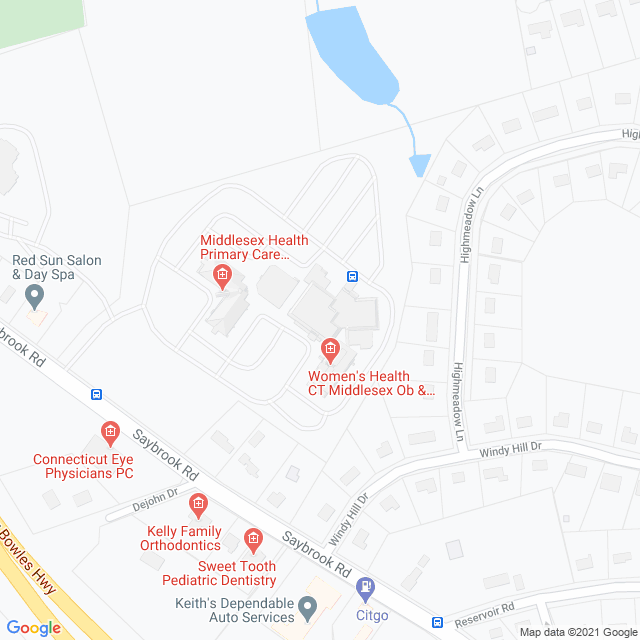Palliative Care

Treating the Whole Person
Providing specialized care focused on controlling symptoms, easing pain and relieving the stress of managing serious illness.
Palliative care is the comprehensive treatment of the symptoms and stress of conditions such as cancer, heart disease, kidney failure, lung disease and other serious illnesses. It is available anytime after your diagnosis and is meant to support you during your primary medical treatment.
Your Goals Guide Your Care
Palliative care plans are designed to meet your unique needs. Our specialized team of doctors, nurses, social workers and spiritual advisors work together to help you:
- Achieve your best possible quality of life through pain relief and management of other symptoms
- Understand your condition
- Cope with the emotions of having a serious illness
- Make decisions about the best treatment and supportive care options for you
Contact Us Today
Call 860-358-4770About Palliative Care
The purpose of palliative care is to improve your quality of life and make it easier to tolerate medical treatment.
Palliative care plans are designed to:
- Reduce pain and discomfort, whether these are symptoms of your illness or side effects of other medical treatments
- Improve your ability to perform daily tasks and activities
- Help you and your loved ones better understand your illness
- Help you talk openly about your goals, emotions and concerns about your illness
- Support you in planning your care and making treatment decisions
- Help you and your loved ones manage stress
- Provide emotional support
It is important to remember that starting palliative care does not mean that you are giving up on curing or treating your illness.
No, palliative care does not replace your primary treatment. Most patients receiving palliative care also continue aggressive medical treatment for their illness.
Palliative care techniques are meant to work alongside any medical treatment you are receiving. Our goal is to help ease suffering and stress.
When you start palliative care, you do not stop seeing your other health care providers. In fact, our team of specially-trained palliative care providers works with the other members of your health care team. We can also help improve communication between you and your primary doctors and nurses.
Palliative care can provide relief from many different symptoms of serious illness and side effects of related treatment, including:
- Pain
- Shortness of breath
- Fatigue
- Constipation
- Nausea
- Loss of appetite
- Numbness
- Problems with sleep
- Other symptoms as necessary
Palliative care services include:
- Pain and symptom control
- Emotional and spiritual support for patients and families
- Help with navigating the health care system
- Care coordination, including help with treatment schedules and other needs
- Information and education about advance directives
- Caregiver support group
Palliative care services are available:
- At our outpatient clinic in Middletown
- If you are in the hospital
- If you qualify for care at home services
Our palliative care providers are available to you in all of these settings and will help coordinate your care if and when your needs change.
You may want to consider palliative care services if you or your loved one:
- Suffer(s) from pain or other symptoms due to any serious illness
- Is diagnosed with a chronic illness such as diabetes, COPD, or heart failure
- Experience(s) illness-related physical and/or emotional pain that is not under control
- Need(s) help understanding an illness and coordinating care
Start Palliative Care as Soon as You’re Ready
You can start the palliative care process when you need it—there’s no reason to wait. Remember, palliative care services are available simultaneously as any and all of your other medical treatments.
The sooner you start working with your palliative care team, the more you can focus on living your daily life and enjoying the activities you love.
Anyone can make a referral—you, your doctor, or a concerned loved one. Simply call us at 860-358-4770 to get started.
At your first appointment, you will meet with a palliative care provider. Together, you will discuss all aspects of serious illness, including:
- Understanding your diagnosis
- Your goals and priorities for during and after your primary medical treatment
- Symptoms of your condition
- Side effects of your primary treatment
- Stress resulting from your diagnosis and/or treatment
- Mental, emotional and spiritual well-being
- Other questions or concerns you may have
Our focus is on understanding what support, relief and quality of life mean to you. Therefore, you can expect your appointment to last longer than a normal doctor’s visit.
After the appointment, our providers will coordinate with other members of your care team. This will help ensure that everyone involved in your care understands the support you are receiving from palliative care, as well as your goals for treatment. Our priority is to ensure that you receive seamless, coordinated service in all areas of your care.
Most insurance plans, including Medicare and Medicaid, cover palliative care.
The insurance process for palliative care is handled like any other health service, such as oncology or cardiology. If you have any concerns about the cost of palliative care, one of our team members can assist you.
Locations
1 Specialty Care Location
1Middlesex Health Palliative Care - Middletown
540 Saybrook RoadMiddletown, CT 06457

The National Alliance for Caregiving offers a comprehensive set of resources to help caregivers better support their loved ones and care for themselves.